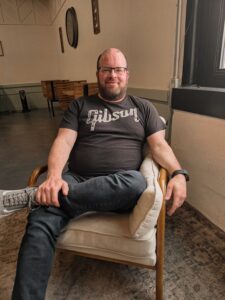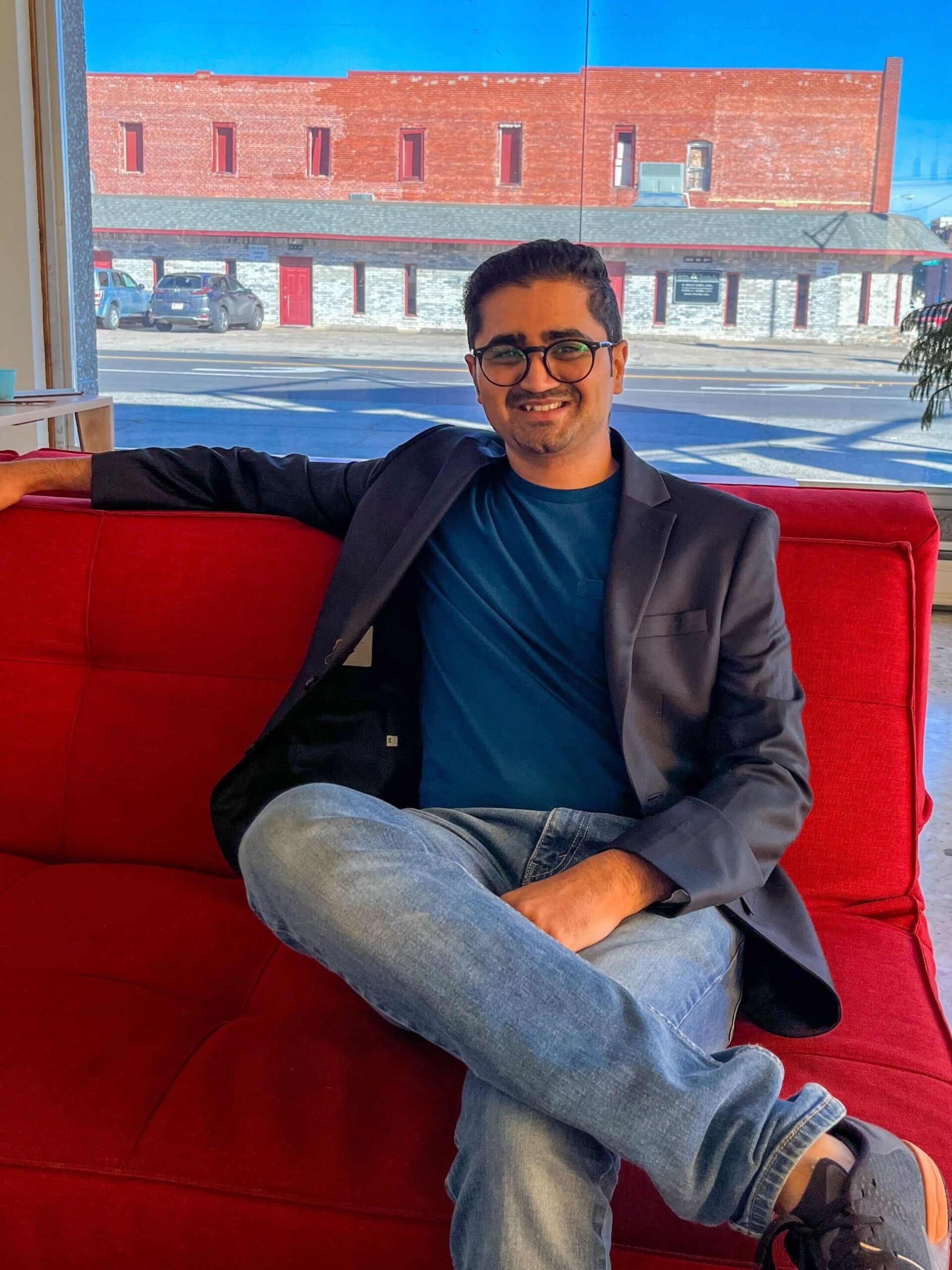
AI IN EDUCATION: A CONVERSATION WITH VINAYAK MITTY
August 5, 2025 by Daniel Castaneda
BY: SUNNIE DAWN BAKER
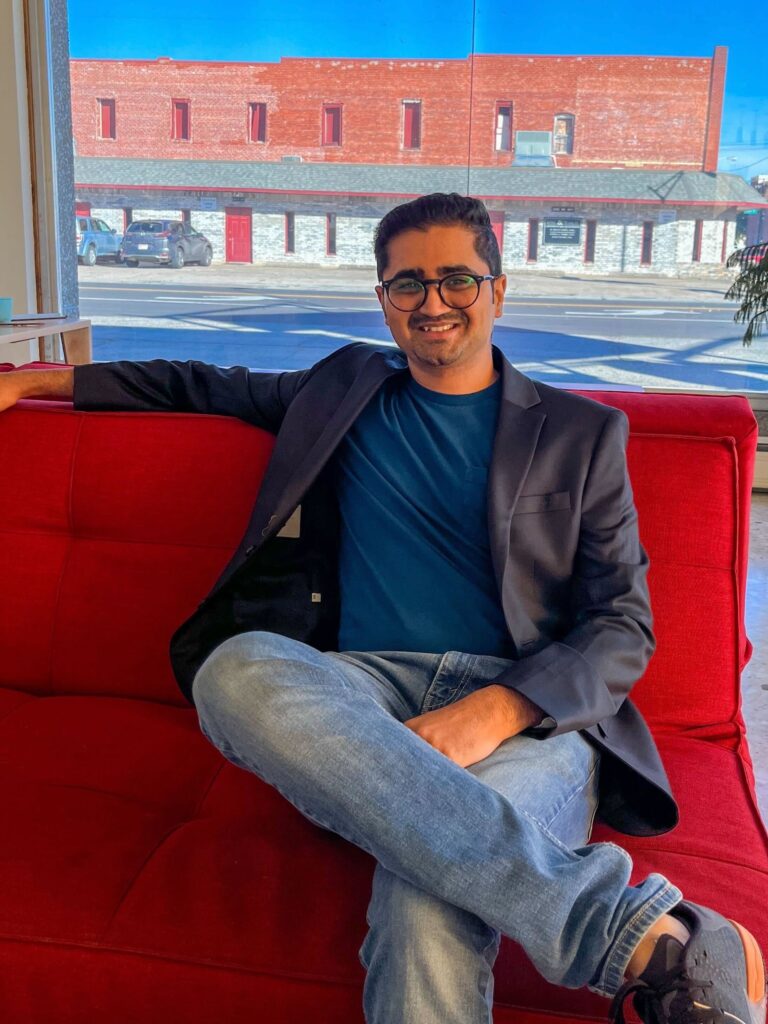
One of the areas in technology with the most potential for entrepreneurial growth is Artificial Intelligence (AI). AI is increasingly shaping every part of our lives, and education is no exception. Vinayak Mitty, Director of Data Science for LegalShield, has been studying the possibilities and pitfalls of AI and sat down with me to discuss the potential future of AI in Education. This topic blends two of Mitty’s interests: education and machine learning. He has built his career in data, AI, and machine learning, while also being involved in education in various capacities for the majority of his life. Mitty says, “These two worlds are colliding, and I feel very passionate about the great things our educational system can do so it is important to define what education is in the AI era.”
While there is much potential for the use of AI in education, there are also many problems and pitfalls, and these negative elements of AI tend to be the things that resound most loudly in our society. Parents and teachers worry about students cheating on exams or homework. People also worry that there is not an incentive to remember anything anymore—a problem that first surfaced with the rise of Google and has only intensified as technology has advanced. Furthermore, ChatGPT, the most popular of the AI tools, was not built for education. There are no appropriate guardrails and it is difficult for teachers to get feedback on what students are learning or struggling with. However, Mitty sees several techniques teachers can use to make AI more beneficial to the learning process.
The Feynman Technique is one such approach to beneficially utilizing AI within the field of education. This technique essentially states that you learn better when you teach a concept to someone. One way that educators can utilize this is by initially having the AI answer questions but then change to make the AI the student and the teacher the student. The student would explain the concept to the AI, and the teacher could then assess how well the student understands the material by the clarity of their explanation. This technique allows teachers to assess student understanding while reinforcing specific knowledge and skills.
Another helpful concept is the Dual Coding Technique. This is where educators can use AI tools to teach students by utilizing multiple modalities of learning, like combining verbal and visual information to create multiple memory paths.. They can use words, but can also transform the material into pictures, video, or audio. Mitty says, “This is already super easy to do with many of the existing tools.” Educators can take their lessons and transform them into comic books, short videos, or podcasts. By using these different types of media, not only do students have more ways to absorb the material, but, by learning it through multiple avenues they are more likely to remember it, much like watching a movie or tv show with the subtitles on.
A third approach to using AI in education is called Interleaving. The concept of “interleaving” essentially states that students learn better when they practice different types of problems together. So, for instance, instead of just practicing a sheet of math problems, a student will learn better if teachers intersperse questions about science, social studies, or reading between them. Not only does this help the students learn and retain information, it also teaches them the crucial skill of context switching, which is invaluable in our fast-paced world of multitasking.
While some are critical of AI and the increasing role that it plays within our lives, Mitty sees the possibilities for educators to use it as a tool to approach teaching from a fresh perspective. When educators use AI appropriately, many avenues open that provide new and different ways of creating lessons, engaging with students, and assessing their skills. In addition to this, it allows teachers to help students learn how to use AI responsibly, which will be an important lesson as they grow older and enter a workforce that will, most likely, be even more saturated with AI than it is now.
Written by
Daniel Castaneda
You may also interested in:
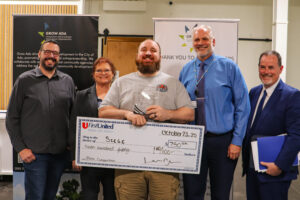
SIEGE AXE LOUNGE'S HIGH-TECH EDGE
BY: CATHLENA SPENCER When you think of axe throwing, you might picture wooden targets and painted bullseyes. Siege Axe Lounge, the 2nd Place winner in the Revenue-Generating category of Grow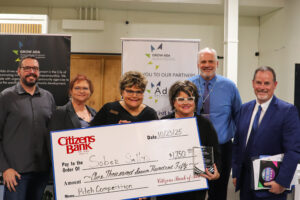
FROM TRAUMA BAY TO TECH STARTUP: HOW TWO HEALTHCARE VETERANS LAUNCHED SOBER SALLY'S TO SAVE LIVES
BY: CATHLENA SPENCER In the world of entrepreneurship, necessity is the mother of invention. For Erin Ogee and Crystal Glass, the necessity was stopping drunk driving, a mission forged from
BUILDING FUTURES: WORK READY ADA CELEBRATES ITS FIRST YEAR
BY: CATHLENA SPENCER Just one year ago, Work Ready Ada, a new employment readiness program, was launched in partnership with Pontotoc Technology Center (PTC). The program, funded by Oklahoma Human
FROM PARKS TO PRODUCTIVITY: THE ECONOMIC IMPACT OF ADA'S QUALITY-OF-LIFE INVESTMENTS
BY: SUNNIE DAWN BAKER Enhancing quality of life is one of the most crucial aspects of developing a local economy. In the 21st century, many people can live and work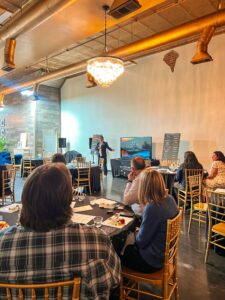
BUILDING ADA'S FUTURE: INDUSTRY, INNOVATION, AND ENTREPRENEURSHIP
BY: SUNNIE DAWN BAKER As the local economic development organization, Grow Ada, formerly known as the Ada Jobs Foundation, is well positioned to facilitate in our community’s continued success. While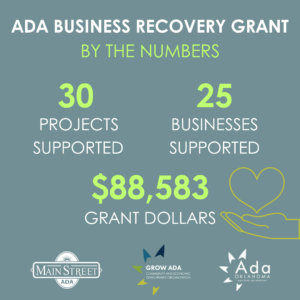
After the Storm: How Ada United to Help Main Street Rebuild
By: Sunnie Dawn Baker In the early hours of March 4th, a tornado flung the citizens of Ada, Oklahoma into chaos as the wind howled and the rain poured, the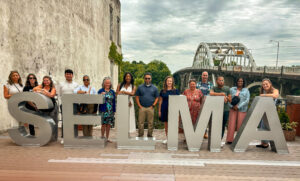
Bridging the Digital Divide: Grow Ada's Role in Advancing Rural Tech Skills
By: Sunnie Dawn Baker Rural communities face many challenges, especially when it comes to digital skilling and technological workforce development. One way that Grow Ada has been working to overcome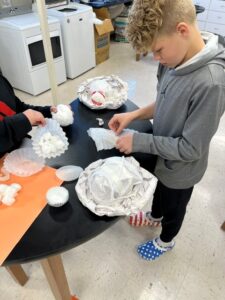
Closing the STEM Gap: ECU’s Innovative Program for Teachers and Students
By: Sunnie Dawn Baker STEM (Science Technology Engineering and Math) is increasingly important in today’s world. Technology touches nearly every aspect of our lives and will continue to expand its
Adapt and Overcome: Allison Poe’s Recipe for Resilience and Growth
By: Sunnie Dawn Baker Allison Poe has always followed her feet. She waits for the signs to appear and, once she recognizes them, she travels that path, and has never